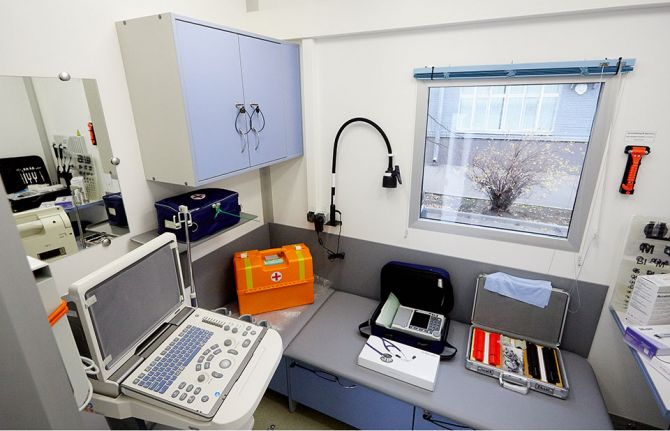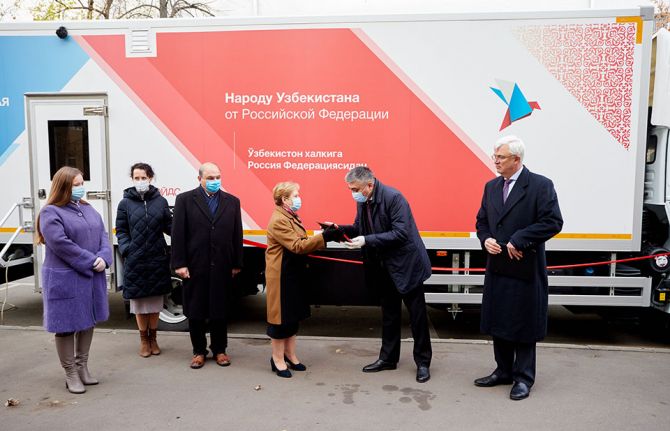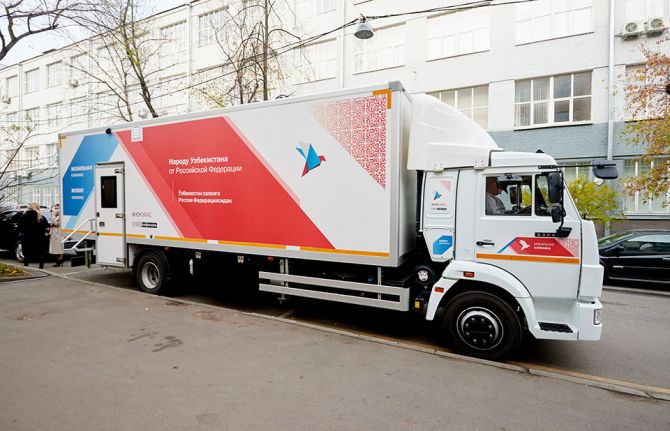



Feature Story
Bringing HIV and COVID-19 testing services to hard-to-reach areas in Uzbekistan
30 October 2020
30 October 2020 30 October 2020The Russian Federation has donated a mobile clinic to Uzbekistan to provide primary health care for people in remote and hard-to-reach regions of the country, including testing for HIV, COVID-19 and other diseases.
The mobile clinic is equipped with the latest medical equipment and diagnostic systems, including for HIV and COVID-19, and is ready to provide people with access to integrated HIV testing and counselling and other forms of medical diagnostics and treatment.
“Thanks to this programme, the citizens of Uzbekistan living in different regions of the country will be able to receive timely information about the symptoms and ways of transmission of infectious diseases, which has become more important than ever,” said Botirjon Asadov, Uzbekistan Ambassador to the Russian Federation.
The clinic was donated as part of a technical assistance programme supported by the Russian Government that is being implemented by UNAIDS in partnership with the Federal Service for Surveillance on Consumer Rights Protection and Human Wellbeing (Rospotrebnadzor) and the nongovernmental organization AIDS Infoshare.
The programme aims to strengthen health systems, ensure better epidemiological surveillance of HIV and promote the scale-up of HIV prevention programmes among populations at higher risk in Armenia, Belarus, Kyrgyzstan, Tajikistan and Uzbekistan.
“Our work in today’s coronavirus pandemic is more relevant than ever. We continue our cooperation to fight COVID-19 and fully support the efforts of the Uzbek authorities to normalize the epidemic situation in the country as soon as possible, and assure that the Russian Federation is ready to provide the necessary assistance,” said Irina Bragina, Deputy Head of Rospotrebnadzor.
To date, 12 mobile clinics have been donated—four to Tajikistan, three to Armenia and five to Kyrgyzstan. Apart from the primary health-care services and a range of HIV screening services, the clinics provide tests for COVID-19, viral hepatitis and sexually transmitted infections and obstetrics, gynaecology, cardiology and urology care. All the mobile clinics offer services free of charge. So far, more than 1.6 million people have used the services provided by the clinics.
“Mobile clinics today not only continue providing primary health-care services, including HIV testing, but also have come to the forefront to combat a new threat—COVID-19,” said Aleksandr Goliusov, Director, a.i., of the UNAIDS Regional Support Team for Eastern Europe and Central Asia.


